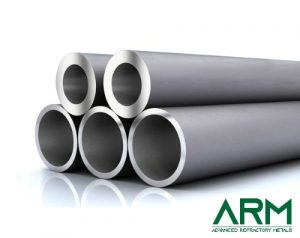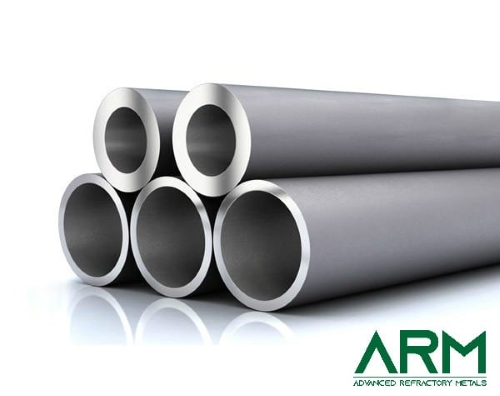Introduction
Zirconium pipes play a critical role in the safe and efficient operation of nuclear reactors. Due to their unique properties, these pipes are essential components in various reactor systems, ensuring the containment and control of nuclear materials while maintaining structural integrity under extreme conditions. This guide explores the key roles and benefits of zirconium pipes in nuclear reactors.

1. Low Neutron Absorption
Neutron Economy:
One of the most significant advantages of zirconium pipes in nuclear reactors is their low neutron absorption cross-section. Neutron economy is crucial in a nuclear reactor because neutrons must be efficiently managed to sustain the nuclear fission chain reaction. Zirconium’s low neutron absorption allows more neutrons to be available for fission, improving the reactor’s efficiency and performance.
Fuel Cladding:
In nuclear reactors, zirconium pipes are often used as fuel cladding—thin tubes that encase the nuclear fuel pellets. The cladding must allow neutrons to pass through with minimal absorption to sustain the chain reaction while providing a barrier between the fuel and the coolant.
Related reading: Something You Should Know About Zirconium Pipes
2. High Corrosion Resistance
Coolant Compatibility:
Zirconium pipes are highly resistant to corrosion, especially in water and steam environments, which are commonly used as coolants in reactors. This corrosion resistance ensures the longevity and integrity of the pipes, preventing the release of radioactive materials and maintaining the reactor’s safety.
Oxidation Resistance:
Zirconium forms a stable oxide layer on its surface, which further enhances its resistance to oxidation at high temperatures. This property is vital in preventing material degradation under harsh conditions inside a nuclear reactor.
3. High-Temperature Performance
Thermal Stability:
Nuclear reactors operate at very high temperatures, and the materials used must withstand these conditions without losing their structural integrity. Zirconium pipes have a high melting point (1855°C or 3371°F) and excellent thermal stability, making them suitable for use in the reactor core where temperatures are extremely high.
Thermal Conductivity:
The good thermal conductivity of zirconium pipes ensures efficient heat transfer from the reactor core to the coolant, aiding in the effective removal of heat generated during fission. This efficient heat transfer is crucial for maintaining the reactor’s temperature and preventing overheating.
4. Mechanical Strength and Durability
Structural Integrity:
Zirconium pipes possess excellent mechanical strength and ductility, allowing them to withstand the high-pressure environment within a nuclear reactor. Their durability ensures that they can endure significant stress and deformation without failing.
Radiation Resistance:
Exposure to intense radiation can cause embrittlement and damage to materials. Zirconium pipes are highly resistant to radiation damage, maintaining their mechanical properties and structural integrity over long periods of exposure.
5. Safety and Reliability
Containment:
Zirconium pipes play a crucial role in containing radioactive materials within the reactor core. By providing a robust barrier between the nuclear fuel and the reactor coolant, they help prevent the release of radioactive substances into the environment.
Accident Tolerance:
In the event of an accident, such as a loss of coolant, zirconium pipes can help maintain their integrity due to their high-temperature resistance and stability. This characteristic enhances the overall safety and reliability of the nuclear reactor.
Conclusion
Zirconium pipes are indispensable components in nuclear reactors due to their low neutron absorption, high corrosion resistance, excellent high-temperature performance, mechanical strength, and radiation resistance. These properties ensure the efficient and safe operation of nuclear reactors by enhancing neutron economy, providing reliable containment, and maintaining structural integrity under extreme conditions. The use of zirconium pipes contributes significantly to the overall safety, efficiency, and reliability of nuclear power generation. For more details, please check Advanced Refractory Metals (ARM).
